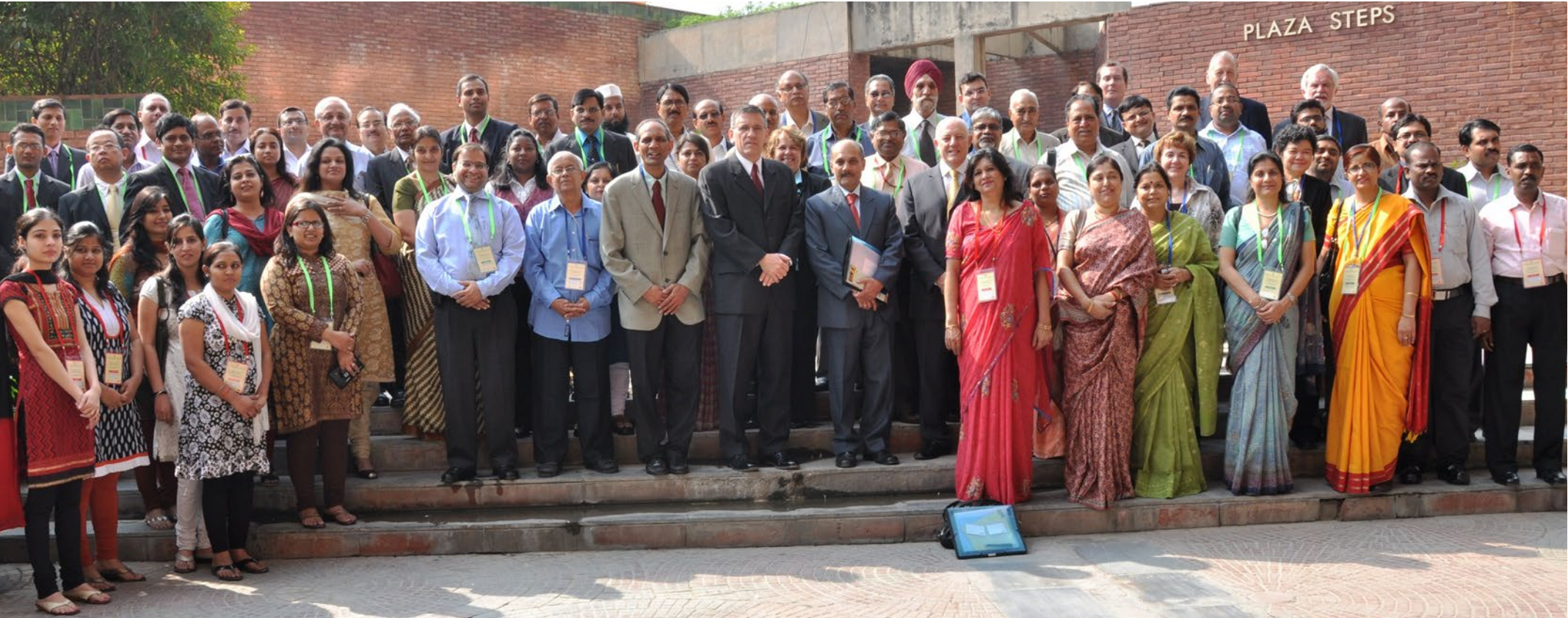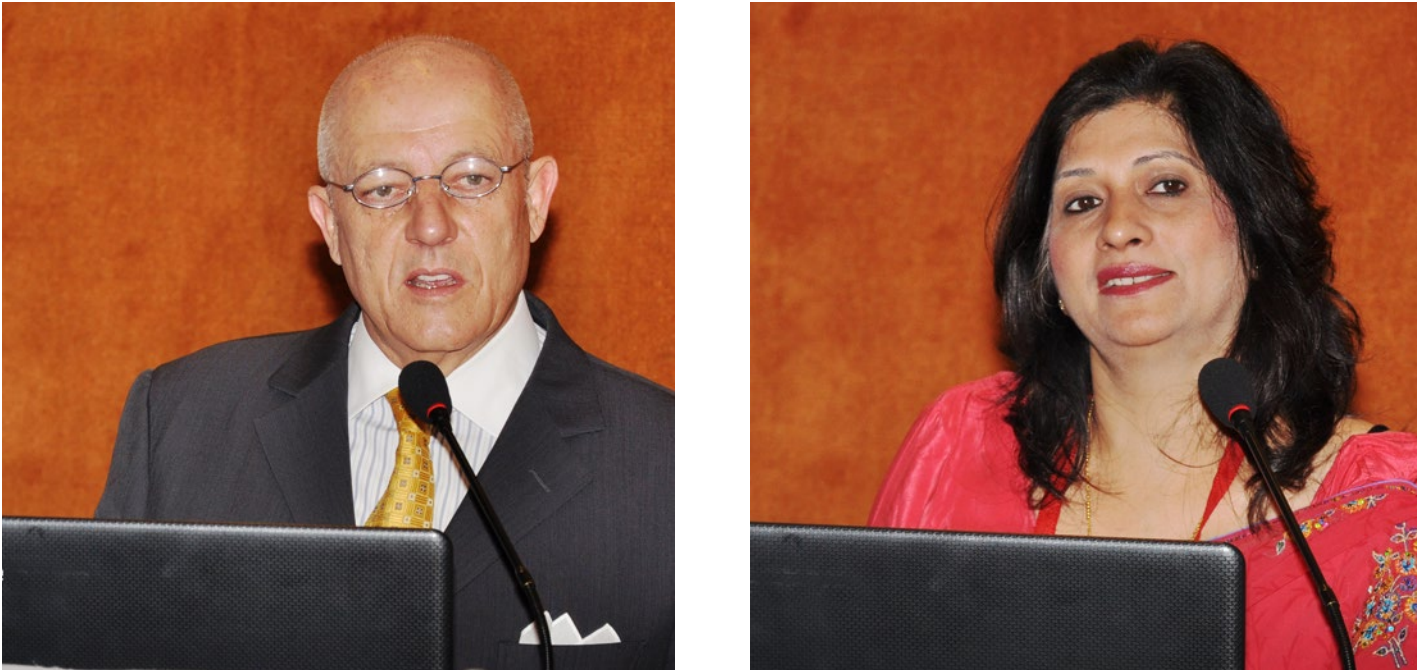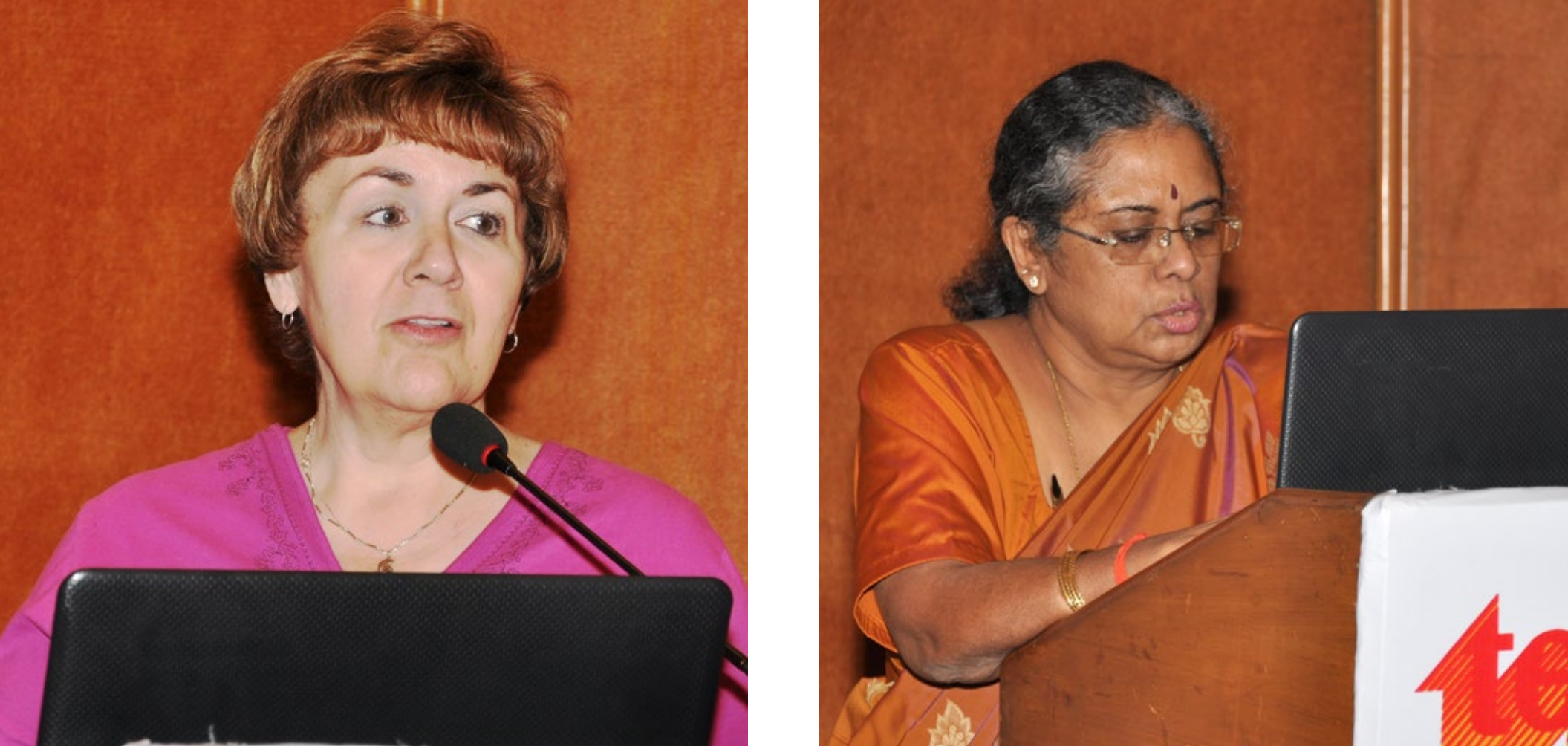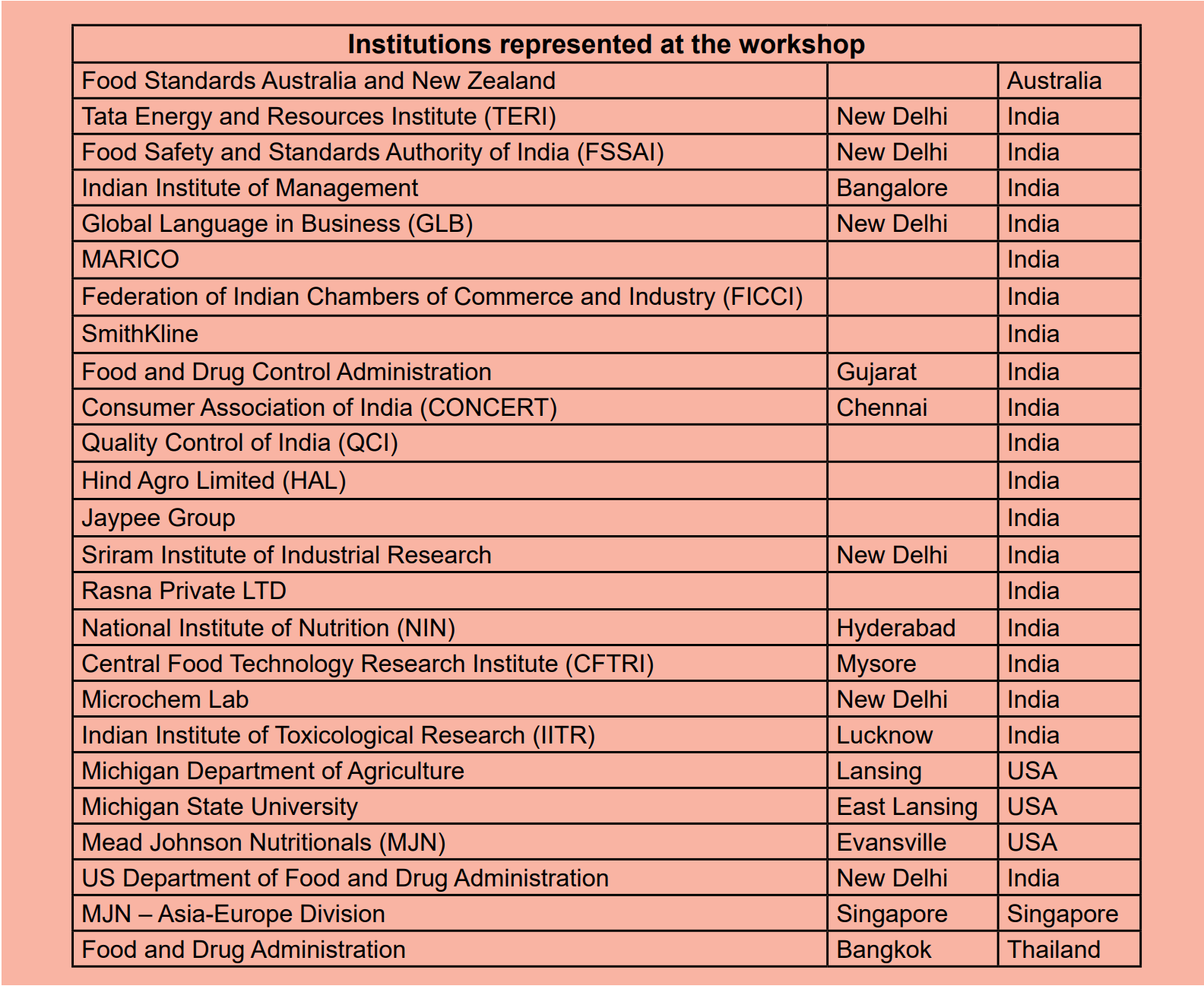
WorldTAP Policy Brief 01 – Building A Functional Food Safety System in India: Best Practices in Food Safety Implementation in the International Arena
DOWNLOAD
WorldTAP Policy Brief 1 – November 2010 Building A Functional Food Safety System in India: Best Practices in Food Safety Implementation in the International Arena
Summary and recommendations of International Conference organized by: Food Safety and Standards Authority of India (FSSAI), The Energy and Resources Institute (TERI), and Michigan State University (MSU) November 9 – 11, 2010, India Habitat Center, New Delhi, India Edited by: Dr. Karim Maredia (MSU), Dr. Nanda Joshi (MSU), Dr. Kathy Fedder (MSU), Dr. Jitendra Dongare (FSSAI), and Dr. Vibha Dhawan (TERI)
Food safety is a global issue. With the globalization of agri-food systems, countries around the world are working to build functional food safety systems to protect public health, expand regional and international trade, encourage innovations, and access new and novel food products. The Government of India has approved a new law called the Food Safety and Standards Act (FFSA) of 2006. Under this act, a new Food Safety and Standards Authority of India (FSSAI) was established in 2006 to consolidate food safety functions that were previously distributed across several Ministries into one national authority (http://www.fssai.gov.in).
As per the provision of the FFSA of 2006, food safety standards are to be aligned with international policies and best practices. In this context, the FSSAI in collaboration with The Energy and Resources Institute (TERI), New Delhi, India; and Michigan State University (MSU), East Lansing, Michigan, USA; organized an International Conference on Best Practices in Food Safety Implementation on November 9-11, 2010, at the India Habitat Center in New Delhi, India. The main objective of this conference was to share the experiences from India and the international community on best practices in food safety governance. More than 100 participants from public and private institutions, academia, consumer organizations, and international organizations attended this conference. The key organizations represented from India were FSSAI, TERI, National Institute of Nutrition (NIN), Central Food Technology Research Institute (CFTRI), Quality Council of India (QCI), the Chamber of Commerce of India (CCI) and Federal of Indian Chamber of Commerce (FICCI). The international community was represented by participants from MSU, U.S. Food and Drug Administration (FDA), Michigan Department of Agriculture, FDA-Thailand, and Mead Johnson Nutrition Company.

The conference was opened by the Chairman of the FSSAI, Shri P. I. Suvrathan with a keynote address by Mr. Charles Urbain, President of the Asia-Europe Division of Mead Johnson Nutrition Company. The participants were welcome by Dr. Vibha Dhawan of TERI, Dr. Karim Maredia of MSU and Sri. S. B. Dongare of FSSAI. In his opening remarks, FSSAI Chairman Shri. Suvratan laid out his vision for applying science and best practices towards building a national food safety system that considers the needs of the people in remote villages across India. In this context, the FSSAI should leverage the strength of other institutions and existing programs in India and internationally.

The participants deliberated on a range of issues including:
- The importance of public-private partnerships in capacity-building and knowledge dissemination.
- The need for FSSAI to develop a mechanism to regulate proprietary foods and dietary supplements.
- Adoption of international best practices in food standards development.
- Effective communication with consumers.
- The need for risk assessment protocols, consumer friendly labeling, a science-based process for approving innovations, regulation of food advertisements, rationalization of labeling information and presentation thereof, harmonization of standards and reciprocity in international standards and inspections.
- Industry-based phased-in implementation of traceability systems.
- The need for development of national reference documents by FSSAI on subjects related to food safety.
- The need for adopting a phased approach to achieve international standards.
The conference included six broad themes focusing on the key issues facing food safety implementation in India. The following is a summary of discussions of these sessions and key recommendations.
I. How should food safety be regulated in India?
India has embarked on a new initiative focused on building a strong food safety system for its domestic and export markets. FSSAI is focused on strengthening the regulatory system that governs smaller food operations such as “street food” vendors, all the way to the largest food manufacturers that export to international markets. The new system will also focus on providing consumers with critical information about food safety, food sources, training of consumers and food industry stakeholders and providing transparency in the regulatory system.
Key recommendations:
- Strengthen the regulation of consumer-friendly food labeling to include licensing information.
- Strengthen the regulation of food advertising.
- Provide consumers with information sources such as help-lines, consumer contact points, a dedicated food safety channel and instruction in primary and secondary school systems (ITC e-Chaupal concept).
- Implement a grading system for food service establishments and educate the public about it.
- Continue and strengthen the Advisories currently issued by FSSAI to provide clarification and precautionary information to stakeholders.
- Ensure effective training of regulatory staff and food handlers.
- Develop simplified food safety sampling and testing procedures, including identification of analytical laboratories based on function.
- Prioritize the legislative needs in implementation of the new law and execute the plan.
II. The role of science and innovations on food safety
Food safety science is evolving rapidly as both old and new food safety challenges face consumers, industry, and governments worldwide. One of the biggest challenges facing India is how to evaluate innovative foods and processes within a science-based framework. Timely innovation is also crucial to India’s domestic and international market development.
Key recommendations: Clearly define scientific principles upon which regulations are based.
- Develop standard operation procedures (SOPs) for proprietary innovative products that include clear standards and rapid decision-making.
- Develop clear risk assessment procedures through FSSAI Risk Assessment Committee, including food label claims.
- Ensure a risk assessment process for food additives.
- Consider surveillance systems, rapid surveys and education and training as methods to increase consumer awareness.

III. Food safety in the supply chain
India has a very divergent food system in that unorganized and mobile street food vendors comprise a large part of domestic food access, and yet India also must focus on challenges related to its role in international markets. The challenge is to ensure that street vendors are trained on and held to basic food safety standards that ensure accessibility, non-discrimination, transparency and accountability. In the international marketplace, the challenge is to address both harmonized standards such as Codex Alimentarius, as well as the increasing use of private standards imposed by actors in the supply chain.
Key recommendations:
- Be aware that common challenges are present for all regulatory systems – evolving science, emerging hazards, social values issues, risk governance, changing behaviors, globalization, resource needs, scale of production and inclusion of stakeholders.
- Modify label regulations to include regional language considerations and pictorial communication.
- Develop street food vending into a profession with standards, best practices, training capacity-building and a method for tracking and monitoring this highly mobile sector.
- Consider the U.S. model of food service regulation at state or local level for street vendors, initially imposing a voluntary system that becomes mandatory at a future date.
- Provide India’s meat industry with additional training for handlers who are often illiterate, and India’s consumers should be made aware of safety issues related to meat product sourcing and handling.
- Consider the FDA Model Food Code, which is adopted and enforced by state and local governments, as a potential model for India at the retail and restaurant level.
- Build capability and capacity for street food vendors to meet regulations (NIN has developed a strategy). Later, the regulatory system could implement testing and enforcement procedures.
- Prepare to meet third party private standards as imposed by buyers in order to ensure global market capacity.
- Encourage mutual acceptance of certifications issued by regulatory bodies in order to promote harmonization.
- Emphasize through Codex Alimentarius the need for countries to implement the consensus decisions arrived at through Codex and to address the plethora of private standards that may reflect a failure of the Codex process.

IV. Challenges in food traceability and product recall
Changing behaviors in India’s food industry means developing a culture whereby anyone in the food industry would know that food safety is a constant component of the business. The development of such a culture is highly dependent upon the regulatory systems; however these behaviors should eventually be motivated by other factors as well, such as ethical, cultural and economic considerations. The discussion on this topic focused primarily on building the initial components into the regulatory system.
Key recommendations:
- Require a food safety plan from each business, but include support structures such as stakeholder consultation and capacity-building so that the initiative is community-driven.
- Draw inference from the concept of a National
- Integrated Food Safety System in the U.S. and build the capacity of all stakeholders in the system.
- Implement surveillance and harmonized inspection and documentation system in place of inspection.
- Adopt a phased-in approach to any new regulatory mechanism.
VI. Food contaminants
The challenge of minimizing food contamination and ensuring food safety is aided by the risk analysis process. Balancing science-based risk assessment with the realities of the social, economic, cultural and political environment (risk management), while also maintaining transparency and inclusivity, is key to gaining and ensuring public trust.
Key recommendations:
- Recognize that risk analysis and the role of science in risk management decisions, varies with countries and incorporates cultural and political dimensions.
- Recognize that risk analysis and the role of science in risk management decisions, varies with countries and incorporates cultural and political dimensions.
- Utilize Primary Health Centers (PHCs) and Integrated Child Development Services (ICDS) centers in India to help increase public awareness.
- Consider codes of practice for different industries, such as that developed by the National Institute of Nutrition for street food vendors.
- Include bulk foods at retail under the FSSA of 2006.
- Prepare FSSAI and partners to respond quickly and in a coordinated manner to contamination incidents, without waiting for scientific panels to be convened.
- Consider cultural and regional factors when developing maximum residue levels.
A way forward
The conference ended with a “way forward” session that strongly emphasized the need for all stakeholders to work together and build ethics and trust. The CEO of FSSAI strongly empathized that food safety issues should never be compromised. He stressed that food security is not possible without food safety, and the responsibility for food safety is not just with government, but with the entire food system. He also stressed that FSSAI is a new agency and rich traditions, customs and daily practices of millions of people in India must be considered while designing and implementing regulations. He particularly emphasized the need to be sensitive to the issues related to street food safety.
Dr. Karim Maredia from MSU stressed the importance of human resources development and international collaborations. He emphasized the need for information sharing, open and distance learning systems for sharing experiences and best practices among the international community. Dr. Maredia also highlighted the importance of taking food safety to remote villages and bringing science into practice for millions of people in India. Dr. Vibha Dhawa from TERI stressed the importance of networking and knowledge sharing and continued collaboration among various stakeholders in India. Dr. Dhawan offered to host future follow-up workshops at TERI.



 Print
Print Email
Email
